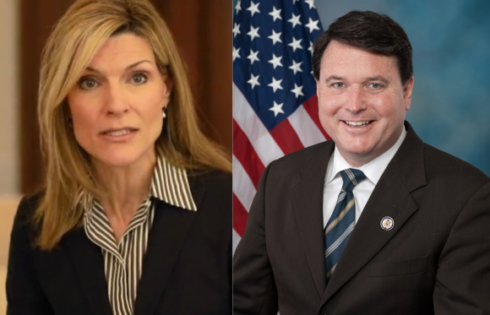 Two professors of psychiatry, one at Stanford Medical School, might have allowed a pharmaceutical company to write an entire textbook for them.
Two professors of psychiatry, one at Stanford Medical School, might have allowed a pharmaceutical company to write an entire textbook for them.
Dr. Alan Schatzberg, former Chair of the Psychiatry Department at Stanford Medical School, along with Dr. Charles Nemeroff of University of Miami Medical School are listed as the authors of a book on psycho-pharmacology for family physicians. But whether or not they actually composed the text of the book is now in question.
The charges arose when the Project on Government Oversight recently filed a complaint with the National Institutes of Health about something it considers to be an increasing problem in the medical academia community: ghostwriting. Evidence contained in the complaint revealed the accusation against Schatzberg.
According to the New York times, a writing company, Scientific Therapeutics Information, was to research for the book under an “unrestricted” research grant from pharmaceutical company SmithKline Beecham. The Associate Editorial Director for Scientific Therapeutics Information, Dr. Sally Laden, sent an email to Nemeroff in 1997 explaining the timeline for the development of the book. The timeline included dates on which drafts from Scientific Therapeutics Information were to be sent to both SmithKline Beecham and to Nemeroff and Schatzberg for review, sign-off, and final approval. The letter also stated that a complete content outline had already been developed and referred to a “primary technical writer” in whom Nemeroff and Schatzberg would be “in good hands.”
Schatzberg told the New York Times that the letter in question was simply, “a theoretical proposal that bears little, if any relationship to what actually happened.” Both Nemeroff and Schatzberg maintain that they were the primary authors, despite the fact that a “primary technical writer” is referenced in the letter.
This most recent development in medical ghostwriting continues an argument advanced by Senator Charles Grassley (R – IA) this past summer. According to the Chronicle of Higher Education, several controversial “blockbuster” drugs’ marketing campaigns may have benefited from ghostwritten articles. Now Grassley and the Project on Government Oversight are calling for tighter regulation of academic medical writing from the National Institutes of Health or from universities themselves.
The Stanford Daily notes that Stanford School of Medicine has a specific policy prohibiting ghostwriting, implemented in 2006, long after the incident with Schatzberg took place. But many schools don’t yet have such a policy.
While research grants from pharmaceutical companies are not unusual, one must naturally wonder whether or not SmithKline Beecher would benefit financially from some of the content in the book. Certainly some of the smaller ghostwritten articles pointed out by the Chronicle of Higher Education supported the drugs being promoted by the pharmaceutical companies writing them.
This news does not help a higher education system already struggling with students who pay others to write papers for them. A writer for a custom-essay company recently described his experiences helping students cheat their way through college in another article for the Chronicle of Higher Education. He addresses the academic world and specifically notes the prevalence of cheating and the incompetency of the students who do it.
Do ghostwriting doctors and professors need to be held to the same standards to which students are held, and receive similar punishment? Or are the practices fundamentally different?
Kyle Huwa is a staff writer for the Stanford Review and blogs for Fiat Lux. He is a contributor to the Stanford Review.




Please join the conversation about our stories on Facebook, Twitter, Instagram, Reddit, MeWe, Rumble, Gab, Minds and Gettr.